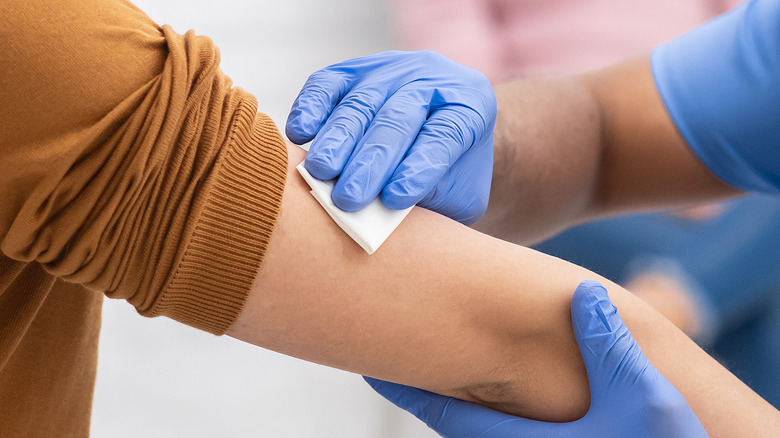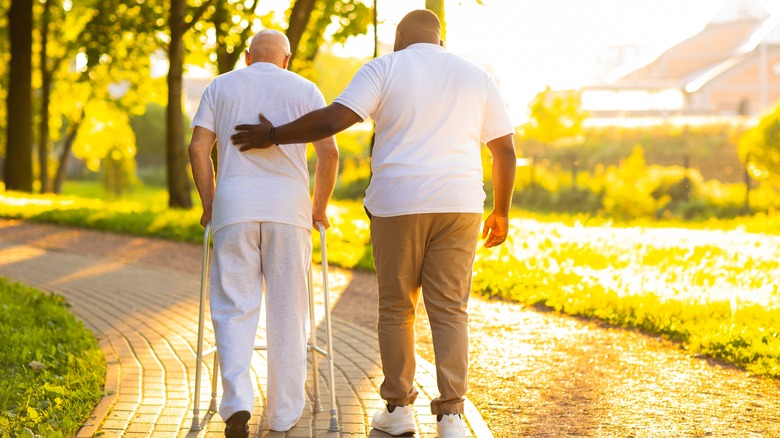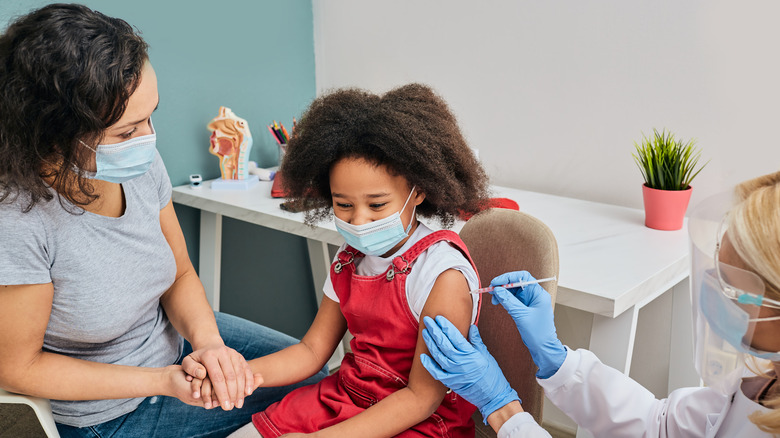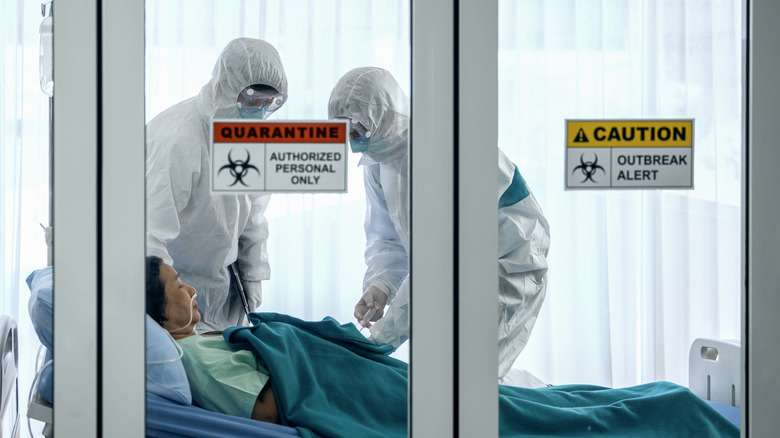The Science Behind How Polio Is Transmitted
According to the Journal of Ayub Medical College at Abbattabad ( Centers for Disease Control and Prevention, polio is a life threatening disease caused by the poliovirus. While most people — around 72% — who contract the disease only ever experience flu-like symptoms, polio can infect the spinal cord and brain, causing serious complications in rare cases, including paralysis. Polio can be spread person-to-person, as well as through contaminated sources, making it highly contagious. Polio primarily affects children under 5 years old, but anyone of any age can become sick from the virus, per the World Health Organization.
While vaccination programs worldwide have all but eradicated the disease, polio is still endemic in Pakistan and Afghanistan (according to the Journal of Ayub Medical College, Abbottabad, posted at the National Library of Medicine). Because the virus has not been entirely eliminated worldwide, polio occasionally spreads to other parts of the world, including the United States. Luckily, understanding how it spreads and what you can do to prevent contracting and spreading the disease can go a long way towards eliminating any threats it may pose.
Polio is highly contagious
One in 200 cases of polio lead to permanent paralysis, and up to 5% to 10% of those cases are fatal (via the American Museum of Natural History). This is why serious efforts have been made to eradicate the disease through vaccination since the 1950s. Unfortunately, polio is highly contagious. Additionally, someone with the virus can spread polio for seven to 10 days before showing symptoms (via the New York State Department of Health). Combine this with the fact that so many infected people show no symptoms, and you can see how polio is so troublesome.
The poliovirus lives in a person's throat and intestines and can be spread person-to-person from the mouth and feces. This means it can potentially spread to anyone who has come in contact with an infected person's saliva, as well as through contact with infected feces (via the Centers for Disease Control and Prevention). Since those carrying the virus can spread it even without showing symptoms, infected individuals may spread it without even knowing. It is also possible that poliovirus can live in contaminated food and water, further spreading it among individuals.
Polio can cause long-term health problems
In addition to being potentially life-threatening, polio can cause lifelong health problems after infection. According to the World Health Organization, rare complications of polio can cause paralysis that is usually permanent. This primarily affects the legs, but can cause paralysis in other parts of the body as well. Paralysis often happens very quickly, sometimes just hours after being infected.
While the risk of paralysis from infection is low, those who have survived after contracting polio can later develop a condition known as post-polio syndrome (PPS). The New York State Department of Health states that PPS can affect polio survivors 10 to 40 years after recovery. PPS causes progressive muscle weakness and deterioration, with the potential to experience joint pain and bone deformations as well. While this is not usually life-threatening, PPS can make it hard to function independently (via the Centers for Disease Control and Prevention).
Polio has been mostly eradicated worldwide
Because of the risk of paralysis and death, health organizations worldwide have worked hard to develop vaccination programs to stop the spread of poliovirus. According to the Centers for Disease Control and Prevention, polio has been eradicated in the United States thanks to vaccination efforts. There has not been a single case of polio that has originated from the U.S. since 1979 due to these medical advances.
The United States polio vaccination programs started in 1955, when Dr. Jonas E. Salk developed the first polio vaccine. Before the vaccine was invented, polio was a major cause of disability in young children (via Mayo Clinic). Today, the Global Polio Eradication Initiative works worldwide to stop outbreaks as they occur and reduce infection rates in countries where the disease is still endemic. This initiative helps to administer vaccines in key areas to prevent the disease from continuing to spread through affected communities.
The first case of polio in the U.S. since 2013 was just confirmed
While polio has been eradicated in the United States and no cases have originated from the country since 1979, cases of polio still appear occasionally. This usually happens when someone has travelled outside the U.S. and contracted the virus. Recently, the first confirmed case of polio in the United States since 2013 was confirmed in Rockland County New York, according to the New York State Department of Health.
Unfortunately, the individual infected with polio in New York — an unvaccinated adult man — has developed paralysis, and had not recently traveled outside the country (via Stat News). This could mean that the individual contracted the virus from another person, who may be unknowingly continuing to spread the virus to others. According to the Rockland County executive, the individual with polio is no longer contagious, and health officials are investigating who the patient may have contracted the virus from (via The New York Times).
Vaccines can keep polio from spreading
Fortunately, most U.S. citizens are already protected from contracting polio, as the polio vaccine is on the U.S. childhood immunization schedule (via the Centers for Disease Control and Prevention). However, those who may have opted out or children whose parents have chosen to not have them vaccinated may be at risk. According to Jennifer Nuzzo, a Brown University pandemic researcher, "If you're vaccinated, it's not something you need to worry about. But if you haven't gotten your kids vaccinated, it's really important that you make sure they're up to date" (via the Associated Press).
Rockland County, New York, is currently hosting polio vaccination clinics and is encouraging anyone not vaccinated against the disease to consider getting vaccinated immediately. Health commissioner Mary Bassett encouraged New Yorkers to get vaccinated, stating, "Based on what we know about this case, and polio in general, the Department of Health strongly recommends that unvaccinated individuals get vaccinated or boosted with the FDA-approved [inactivated polio vaccine] as soon as possible" (via Politico).





